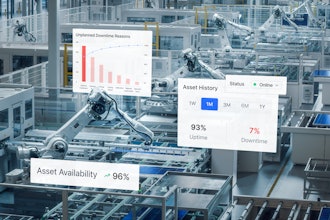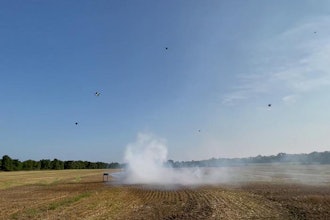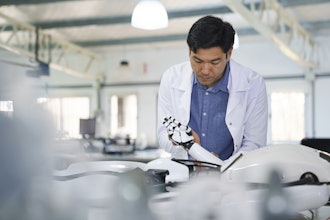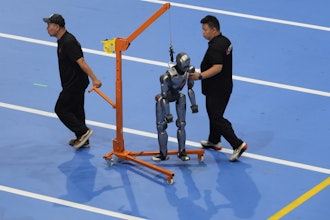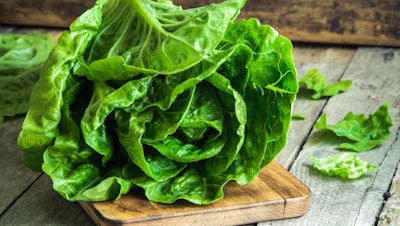
In a study in the February 2016 issue of HortTechnology, researchers looked at the feasibility of using automated thinners in romaine lettuce production.
Their results showed that automated thinning increased plant size and uniformity, and "makes it possible for growers to increase plant population and crop yield by optimizing in-row spacing."
Corresponding author Guangyao (Sam) Wang explained that the automated thinners currently employed in lettuce production use digital cameras to identify each lettuce seedling, analyze spacings, and remove unwanted plants by spraying them with salt, acid-based fertilizer, or herbicide.
Automated thinners have been shown to lower costs and increase the speed of the thinning process.
"Given the rapid increase in the use of automated thinners in the lettuce industry, it is important to examine the effects of this technology on in-row spacing, plant size, and crop yield and to determine if there are ways to enhance its benefits," Wang said.
The scientists did three field experiments in 2013 and 2014 in Imperial County, California. Two treatments were included in each experiment: automated thinning and hand thinning. Each plot consisted of six beds with six rows of romaine heart lettuce were grown on each bed.
"Many growers have visually noticed that lettuce thinned by automated thinners may grow more vigorously than lettuce in hand-thinned fields," the authors said. "Comparing automated thinning and hand thinning of lettuce in this study confirmed these observations. The lettuce plants in the automated thinning treatment were more uniform in in-row spacing and individual plant weight, and larger in plant and heart weight. However, yield benefits were not significant in two of the three experiments."
The scientists said that these results can help growers increase romaine lettuce plant population and crop yield by optimizing in-row spacing. They added that automated thinning appears to be especially beneficial when used with plants grown in heavy clay soils.










